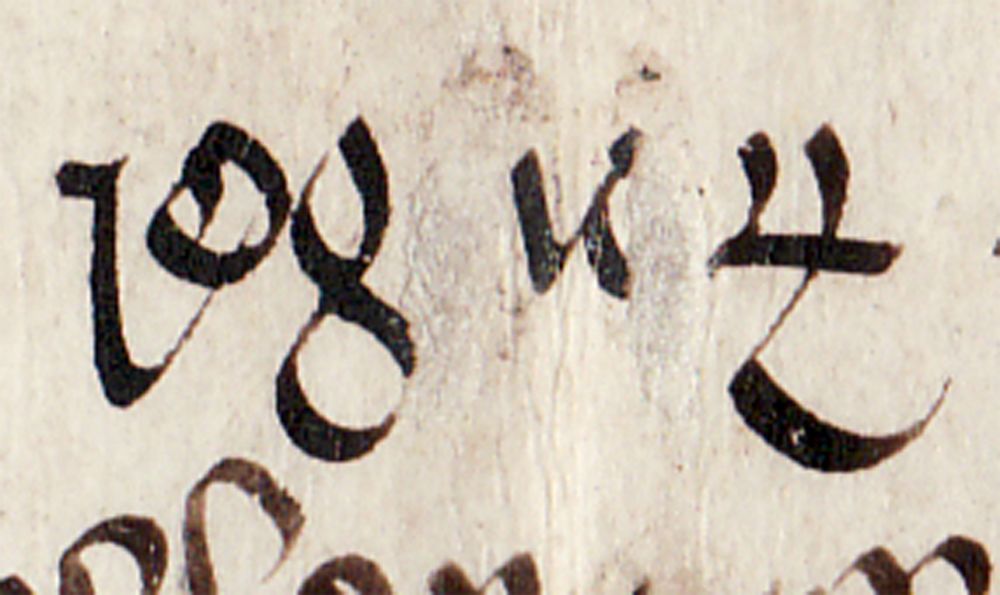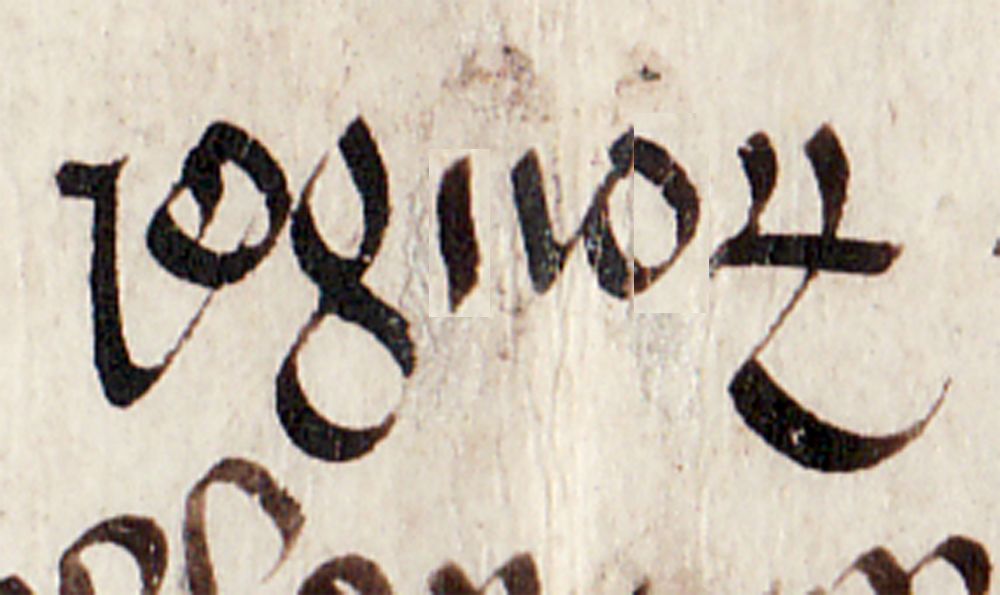Good Morning,
I would be grateful if you could assist me in completing the translation of this manuscript. I have gone as far as i can and have the "first pass" transcription.
My Latin is non-existent so it is likely the tenses are incorrect. I am particularly struggling with peoples names - so odd names and LOTS of variants.
I will post the image of the manuscript here as well as a link to a PDF which gives my line by line breakdown, transcription and any observations i have made. The words or letters i cannot transcribe show as red on the line by line breakdown in the PDF.
Cinefactus was kind enough to assist me considerably on a Henry 6th Latin Manuscript a year ago or so which i am extremely thankful for.
Manuscript:

PDF: http://www.mytinyworld.co.uk/latin-manuscripts/manu16-E1.pdf (file also uploaded)
Transcription to date:
Note: Anything in [ ] I have expanded in the course of transcription.
Hec est finalis concordia f[a]c[t]a in cur[ia] d[o]mne Regine apud Westm[onasterium] a die pasche in quindecim dies Anno regnor[um] Elizabeth dei gra[cia] Angli[e] ffranc[ie] & Hibine Regine fidei defens[oris] &c [etc]. A conqu[esto] vicesimo sexto coram Ed[mund]o Anderson Thoma Walmysley ffrancisco Beaumonti? & Thoma ? We?? justic[iarijs] et alijs d[o]mne Regine fidelib[us] tunc ibi p[re]sentib[us] int[er] Joh[an]n[e]s Verrofi & Abrahamus Verroffi quer[entes] & Nich[ola]us Lyndham? & Johannam vx[or]em eius deforc[iants] de vno mesuagis vno gardino vno pomari[j] quatuor acris ??e & tribr acris pratis cum p[er]tin[enis] in Lyndfeild vnde pl[ac]itm conuenco[n]is sum[monitum] fuit int[er] eos in eadem Cur[ia] Scil[ice]t q[uo]d p[re]d[ic]ti Nich[ola]us & Johanna recogn[ovrunt] p[re]dc[t]a cen[tum] cum p[er]tin[entijs] esse ius ipius Joh[ann]is vt illa que ijdem Joh[ann]es & Abrahamus hent de dono p[re]dc[t]or[um] Nich[olau]s et Johanne et illa remiser[unt] & quieteclam[averunt] de ipsis Nich[ola]us et Johanna & hered[ibus] suis p[re]dcto Joh[ann]is & abrahamo & hered[ibus] ipius Joh[ann]is imp[er]p[etuu]m et p[re]te[ri]a ijd[e]m Nich[ola]us & Johanna concesser[unt] p[ro] se & hered[ibus] ipius Johano q[uo]d ipi Warant[izabunt] p[re]dcto Joh[ann]is & Abrahamo & hered[ibus] ipius Joh[ann]is p[re]dc[t]a ten[ementa] cum p[er]tin[encijs] contra p[re]dctos Nich[ola]m & Johnannam & hered[ibus] ipius Johanne imp[er]p[etuu]m et p[ro] hac recogn[icione] remissione quietaclam[acione] Warant[o] fine & Concordia ijd[e]m Joh[ann]es & Abrahamus dede[runt] p[re]d[ic]tis Nich[ola]o & Johanno quadraginta & vuaui libras stirlingor[um]
Many Thanks,
Paul
I would be grateful if you could assist me in completing the translation of this manuscript. I have gone as far as i can and have the "first pass" transcription.
My Latin is non-existent so it is likely the tenses are incorrect. I am particularly struggling with peoples names - so odd names and LOTS of variants.
I will post the image of the manuscript here as well as a link to a PDF which gives my line by line breakdown, transcription and any observations i have made. The words or letters i cannot transcribe show as red on the line by line breakdown in the PDF.
Cinefactus was kind enough to assist me considerably on a Henry 6th Latin Manuscript a year ago or so which i am extremely thankful for.
Manuscript:

PDF: http://www.mytinyworld.co.uk/latin-manuscripts/manu16-E1.pdf (file also uploaded)
Transcription to date:
Note: Anything in [ ] I have expanded in the course of transcription.
Hec est finalis concordia f[a]c[t]a in cur[ia] d[o]mne Regine apud Westm[onasterium] a die pasche in quindecim dies Anno regnor[um] Elizabeth dei gra[cia] Angli[e] ffranc[ie] & Hibine Regine fidei defens[oris] &c [etc]. A conqu[esto] vicesimo sexto coram Ed[mund]o Anderson Thoma Walmysley ffrancisco Beaumonti? & Thoma ? We?? justic[iarijs] et alijs d[o]mne Regine fidelib[us] tunc ibi p[re]sentib[us] int[er] Joh[an]n[e]s Verrofi & Abrahamus Verroffi quer[entes] & Nich[ola]us Lyndham? & Johannam vx[or]em eius deforc[iants] de vno mesuagis vno gardino vno pomari[j] quatuor acris ??e & tribr acris pratis cum p[er]tin[enis] in Lyndfeild vnde pl[ac]itm conuenco[n]is sum[monitum] fuit int[er] eos in eadem Cur[ia] Scil[ice]t q[uo]d p[re]d[ic]ti Nich[ola]us & Johanna recogn[ovrunt] p[re]dc[t]a cen[tum] cum p[er]tin[entijs] esse ius ipius Joh[ann]is vt illa que ijdem Joh[ann]es & Abrahamus hent de dono p[re]dc[t]or[um] Nich[olau]s et Johanne et illa remiser[unt] & quieteclam[averunt] de ipsis Nich[ola]us et Johanna & hered[ibus] suis p[re]dcto Joh[ann]is & abrahamo & hered[ibus] ipius Joh[ann]is imp[er]p[etuu]m et p[re]te[ri]a ijd[e]m Nich[ola]us & Johanna concesser[unt] p[ro] se & hered[ibus] ipius Johano q[uo]d ipi Warant[izabunt] p[re]dcto Joh[ann]is & Abrahamo & hered[ibus] ipius Joh[ann]is p[re]dc[t]a ten[ementa] cum p[er]tin[encijs] contra p[re]dctos Nich[ola]m & Johnannam & hered[ibus] ipius Johanne imp[er]p[etuu]m et p[ro] hac recogn[icione] remissione quietaclam[acione] Warant[o] fine & Concordia ijd[e]m Joh[ann]es & Abrahamus dede[runt] p[re]d[ic]tis Nich[ola]o & Johanno quadraginta & vuaui libras stirlingor[um]
Many Thanks,
Paul
Attachments
-
1.3 MB Views: 735


